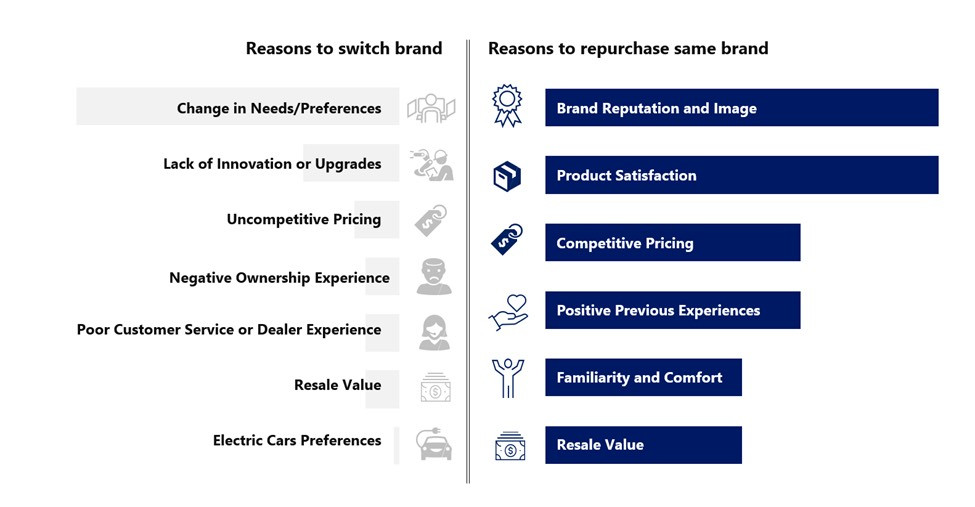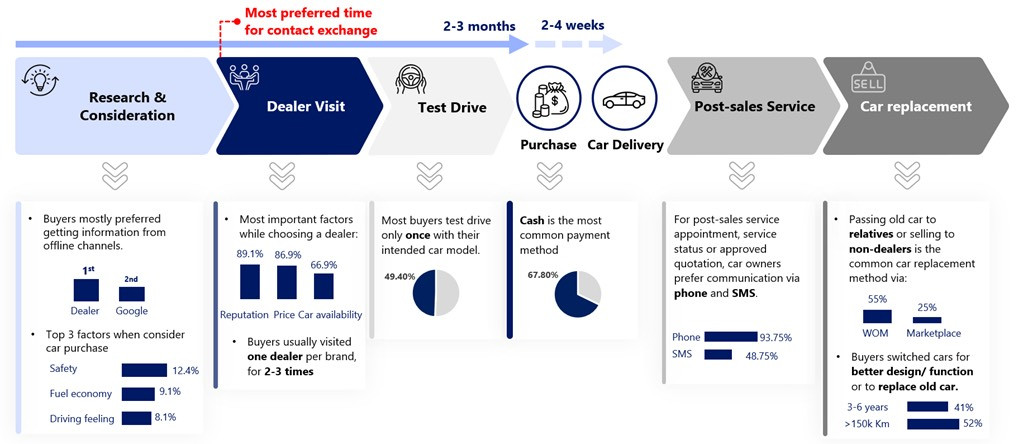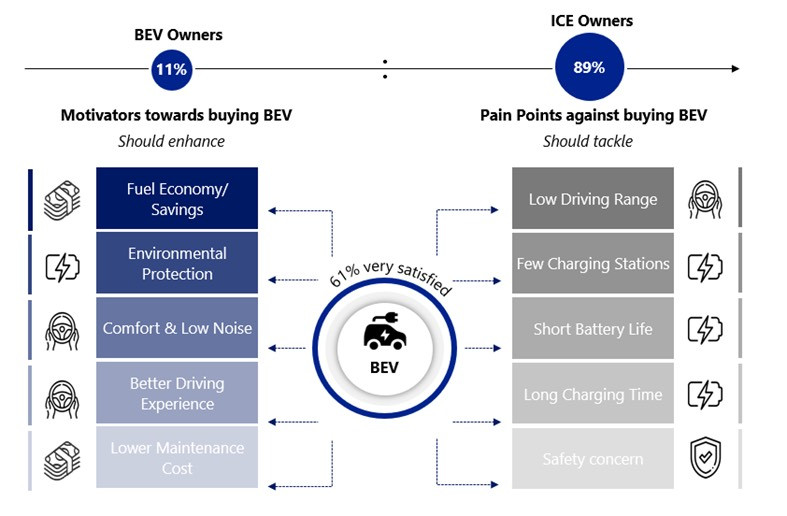The Vietnamese automobile industry presents a dynamic landscape filled with opportunities and challenges. Understanding the evolving preferences of car buyers, adapting to technological advancements, and addressing infrastructure bottlenecks are crucial for navigating this exciting phase of growth. By embracing innovation and staying attuned to local trends, stakeholders can ensure a smooth ride toward a sustainable and prosperous future for the Vietnamese automobile market.

ABeam Consulting’s survey was conducted across six major cities in Vietnam, including Hanoi, Hai Phong, Da Nang, Binh Duong, Can Tho, and Ho Chi Minh City. A total of 320 respondents participated, providing a comprehensive sample that represents a cross-section of Vietnam's car-buying population. A vast majority of the survey respondents were upper-middle-class male self-employed or freelance males over 30 years of age.
The survey revealed determinants steering respondents towards either repurchasing the same brand or making a switch in their latest purchase. The findings underscore that brand reputation, product satisfaction, and competitive pricing stand out as pivotal factors fostering brand loyalty. As for brand switching, the primary driver is identified as shifts in buyers' evolving needs or preferences, followed by lack of innovation or upgrades from previous brands.
Varied behavior across consumer journey
Automobile consumer journey unfolds across five key stages, each revealing distinct characteristics in consumer behavior, including (1) research and consideration, (2) dealer visit, (3) test drive, (4) purchase and delivery, (5) post-sales service, and end with (6) car replacement.
The survey sheds light on noteworthy aspects of consumer behavior at each stage. The entire lead time from research to actual purchase typically spans 2-3 months, with an additional 2-4 weeks for delivery.
During the research phase, consumers predominantly seek information from dealers as the primary offline source and Google as the primary online channel. Safety, fuel economy, and driving experience emerge as the top three factors influencing car purchase decisions. Moving on to the dealer visit stage, reputation, price, and car availability take precedence, as selected by over 65% of respondents. This stage is also the preferred time for contact exchange among respondents.

While most buyers visit a single dealer per brand 2-3 times, the majority conduct a test drive only once for their chosen model. In the purchase and delivery stage, cash proves to be the most common payment method, with 67.8% of respondents opting for this approach.
Post-sales services are typically initiated through phone or SMS communication, with phone communication being the preferred method for almost 100% of respondents. As the journey concludes, car replacement tends to occur when the vehicle reaches 3-5 years of use or surpasses 150,000 km in mileage. Car replacements often involve passing the vehicle to relatives or non-dealers.
Potential of electric vehicles
The survey results highlight a potential uptick in the desire for battery electric vehicles (BEVs) within the market.
Among survey respondents, only 11% of participants possess a BEV, however, there is notable contentment, with 61% expressing high satisfaction. Primary motivations for choosing a BEV include fuel economy/savings and environmental consciousness.
Despite these positive sentiments, there are significant barriers hindering the adoption of eco-friendly vehicles, in which foremost are limited driving range and a scarcity of charging stations. Addressing these challenges is crucial to overcoming obstacles and expanding the market for BEVs.
In the era of digitization, most buyers still prefer purchasing their cars in person. However, the use of tablets and paperless processes in dealerships is becoming increasingly popular. While the majority of respondents indicated they were unlikely to switch to car services like ride-hailing, car-sharing, or car subscriptions, this could change as these services become more prevalent and efficient.
Key takeaways for stakeholders
The survey provides valuable insights for stakeholders in the Vietnamese automobile industry. Understanding the evolving preferences and behaviors of car buyers can inform strategic decisions related to product development, marketing, and customer service.

Companies should continue enhancing brand reputation, product satisfaction, and competitive pricing while staying responsive to evolving consumer needs through continuous innovation, which is paramount for sustained brand loyalty and success in a dynamic market.
By delving into consumer behaviors in each stage of the consumer journey, companies can tailor their strategies to align with customer expectations, enhance the overall customer experience, and differentiate themselves in a competitive market.
Companies must prioritize promoting motivators such as fuel economy and environmental awareness to expand the BEV customer base, while addressing challenges like low driving range and limited charging stations.
While the current trend of digitalization is limited to tablet usage in service provision, it is imperative for EV companies to anticipate upcoming digital transformations while continually enhancing in-person customer experiences.
As the Vietnam automobile industry continues to evolve, staying attuned to these trends and adapting accordingly will be crucial for success.
PV